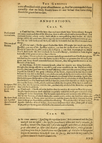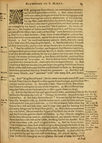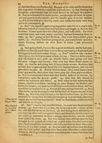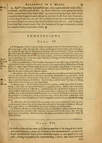In his own country (signifying the reprobate Jews) he is contemned, and therefore worketh little in respect. (7) His Apostles preach everywhere and work miracles, so that King Herod (who shamefully killed John Baptist) and others are stricken with great admiration. (30) After John’s death he goeth into the Desert, where great concourse being unto him, he feedeth 5000 with five loaves. (46) And after he hath prayed long in the mountain, he walketh upon the sea. (53) And with the very touch of his garment’s hem he healeth innumerable.
AND going out from thence, he went into his country; and his Disciples followed him. 2And when the Sabboth was come, he began to teach in the Synagogue: and many hearing him were in admiration at his doctrine, saying: How came this fellow by all these things? and what wisdom is this that is given to him, and such virtues as are wrought by his hands? 3Is not this • the Carpenter, the Son of Mary, the brother of James and Joseph and Jude and Simon? why, are not also his sisters here with us? And they • were scandalised in him. 4And Jesus said to them: That there is not a Prophet without honour, but in his own country, and in his own house, and in his own kindred. 5And • he could not do any miracle there, but only cured a few that were sick, imposing his hands. 6And he marvelled because of their incredulity, and he went about the towns in circuit teaching.
7 * And he called the Twelve; and began to send them two and two, and gave them power over unclean Spirits. 8And he commanded them that they should take nothing for the way, but a rod only: not scrip, not bread, nor money in their purse, 9but shod with sandals, and that they should not put on • two coats. 10And he said to them: Whithersoever you shall enter into a house, there tarry till you depart thence. 11And whosoever shall not receive you, nor hear you; going forth from thence shake off the dust from your feet for a testimony to them. 12And going forth they preached that they should do penance: 13And they cast-out many Devils, and * anointed • • with [a] oil many sick, and healed them.
14And * King Herod heard (for his name was made manifest) and he said: That John the Baptist is risen again from the dead, and therefore virtues work in him. 15And others said: That it is Elias. But others said: That it is a Prophet, as one of the Prophets. 16Which Herod hearing, said: John whom I beheaded, he is risen again from the dead.
17For the said Herod sent and apprehended John, and bound him in prison for Herodias the wife of [b] Philippe his brother, because he had married her. 18For John said to Herod: * It is not lawful for thee to have thy brother’s wife. 19And Herodias lay in wait for him: and was desirous to kill him, and could not. 20For Herod feared John, knowing him to be a just and holy man: and he kept him, and by hearing him did many things: and he heard him gladly. 21And when a convenient day was fallen, Herod made the supper of his birth-day to the Princes, and the Tribunes, and the chief of Galilee. 22And when the daughter of the same Herodias came in, and had danced, and pleased Herod, and them that sat with him at the table, the King said to the damsel: Ask of me what you will, and I will give it thee. 23And he swore to her: That whatsoever thou shall ask I will give thee, though the half of my Kingdom. 24Who when she was gone forth, said to her mother: What shall I ask? But she said: The head of John the Baptist. 25And when she was gone in by and by with haste to the King, she asketh saying: I will that forthwith thou give me in a platter the head of John the Baptist.
26And the King was struck sad. Because of his oath and for them that sat together at table he would not displease her: 27but sending the hangman, commanded that his head should be brought in a platter. 28And he beheaded him in the prison, and brought his head in a platter: and gave it to the damsel, and the damsel gave it to her mother. 29Which his Disciples hearing came, and took his body; and they put it in a monument.30And * the Apostles gathering together unto Jesus, made relation to him of all things that they had done and taught. 31And he said to them: Come apart into the desert place, and rest a little. For there were that came and went, many: and they had not so much as space to eat. 32And * going up into the boat, they went into a desert place apart. 33And they saw them going away, and many knew: and they ran flocking thither on foot from all cities, and prevented them.
34And going forth, Jesus saw a great multitude; and he had compassion on them, because they were as sheep not having a shepherd, and he began to teach them many things. 35And * when the day was now far spent, his Disciples came to him, saying: This is a desert place, and the hour is now past: 36dismiss them, that going out into the next villages and towns, they may buy themselves meats to eat. 37And he answering said: Give ye them to eat. And they said to him: Let us go and buy bread for two hundred pence: and we will give them to eat. 38And he says to them: How many loaves have you? go and see. And when they knew, they say: Five, and two fishes. 39And he commanded them that they should make all sit down, by companies upon the green grass. 40And they sat down in ranks by hundreds and fifties. 41And when he had taken the five loaves, and the two fishes: looking up unto Heaven, he blessed, and broke the loaves, and gave to his Disciples to set before them: and the two fishes he divided to all. 42And all did eat, and had their fill. 43And they took up the leavings, twelve full baskets of fragments: and of the fishes. 44And they that did eat, were five thousand men. 45And immediately he compelled his Disciples to go up into the boat, that they might go before him beyond the [c] strait to Bethsaida: while himself did dismiss the People.
46And * when he had dismissed them, he went into the mountain to pray. 47And when it was late, the boat was in the midst of the sea, and himself alone on the land. 48And seeing them labouring in rowing (for the wind was against them) and about the fourth watch of the night he cometh to them walking upon the sea, and he would have passed by them. 49But they seeing him walking upon the sea, thought it was a ghost, and cried out. 50For all saw him, and were troubled. And immediately he talked with them, and said to them: Have confidence, it is I, fear ye not. 51And he went up to them into the ship, and the wind ceased: and they were far more astonished within themselves: 52for they understood not concerning the loaves; for their heart was blinded.
53And * when they had passed over, they came into the land of Genezareth, and set to the shore. 54And when they were gone out of the boat, incontinent they knew him: 55and running through that whole country, they began to carry about in couches those that were ill at ease, where they heard he was. 56And whithersoever he entered into towns or into villages or cities, they laid the sick in the streets, and besought him that they might touch but the hem of his garment: and as many as touched him, were made whole.
Footnotes
ANNOTATIONS. CHAP. VI.
↑ 3. The carpenter.) As his country-folks seeing him not only to be a poor man, but also knowing (as they thought) his whole parentage to be but vulgar, not reaching to his Godhead and Divine generation, did take offence or scandal of him: so do the Heretics take like offence at his Person in the Bl. Sacrament, saying: Why, this is not God; for it is bread made of corn by such a baker, of the same mould that such a loaf is: not marking that it was not made Christ by baking, but by Consecration, and the virtue of Christ’s words.
↑ 3. They were scandalised.) This scandal rose partly of envy of his equals by birth, who reputing themselves as good as he, took scorn to be taught of him. Whereupon Christ says: A Prophet is not without honour but in his own country; signifying (as it is plain in Luke) the malice and envy of the Jews his countrymen in refusing him (Joh. 1.) and that the Gentiles would more esteem of him.
↑ 5. He could not.) It is said that he could not work miracles there, not meaning that he was not able, but that on their part there wanted apt disposition to receive them. And therefore he would not of congruity work there, where their incredulity was so great, that it would not have profited them. And for this cause he says * elsewhere to them, that will see and enjoy his miracles, Only believe.
↑ 9. Not two coats.) He forbiddeth superfluities, and too careful provision of bodily things, when they are about God’s service in gaining souls. And for the contrariety that seemeth here and in St. Matthew, understand that there he forbiddeth them to carry rod or staff to defend themselves, here he permitteth a walking rod or staff to lean and stay upon: there he forbiddeth shoes to cover all the foot, such as we wear: here he permitteth sandals, that is such as had soles only, which the poor commonly wear in Jewry, and now some religious men. See St. Augustin’s opinion lib. 2 c. 30 de consensu Evang. to. 4.
↑ 13. With oil.) In the words of the commission oil is not mentioned, and yet it is certain by this their using of oil, that either Christ did then appoint them to use it, or they might take it up of themselves, by virtue of the general commission.
↑ 13. With oil.) By this it is clear that not only the Apostles or other may have power to work miracles, by their only word and invocation of Christ’s name, but also by application of creatures: which creatures also have a miraculous medicinal virtue to heal diseases.
Margin Notes
- 17–29. The Ghospel upon the decollation of St. John Baptist, Aug. 29.
- 46–56. The Ghospel on Saturday after Ash Wednesday.
Margin References
- 1. Mat. 13, 54. Luc. 4, 16.
- 7. Mat. 10, 1. Luc. 9, 1.
- 13. Jac. 5, 14.
- 14. Mat. 14, 1. Luc. 9, 7.
- 28. Lev. 18, 16, 20, 21.
- 30. Luc. 9, 10.
- 32. Mat. 14, 13.
- 35. Mat. 14, 15. Luc. 9, 12. Joa. 6, 5.
- 46. Mat. 14, 23. Joa. 6, 16.
- 53. Mat. 14, 34.
- annot. 3. Chrys. hom. 49, in Mat. Luc. 4, 25.
- annot. 5. Mar. 5, 36. Mat. 10.




